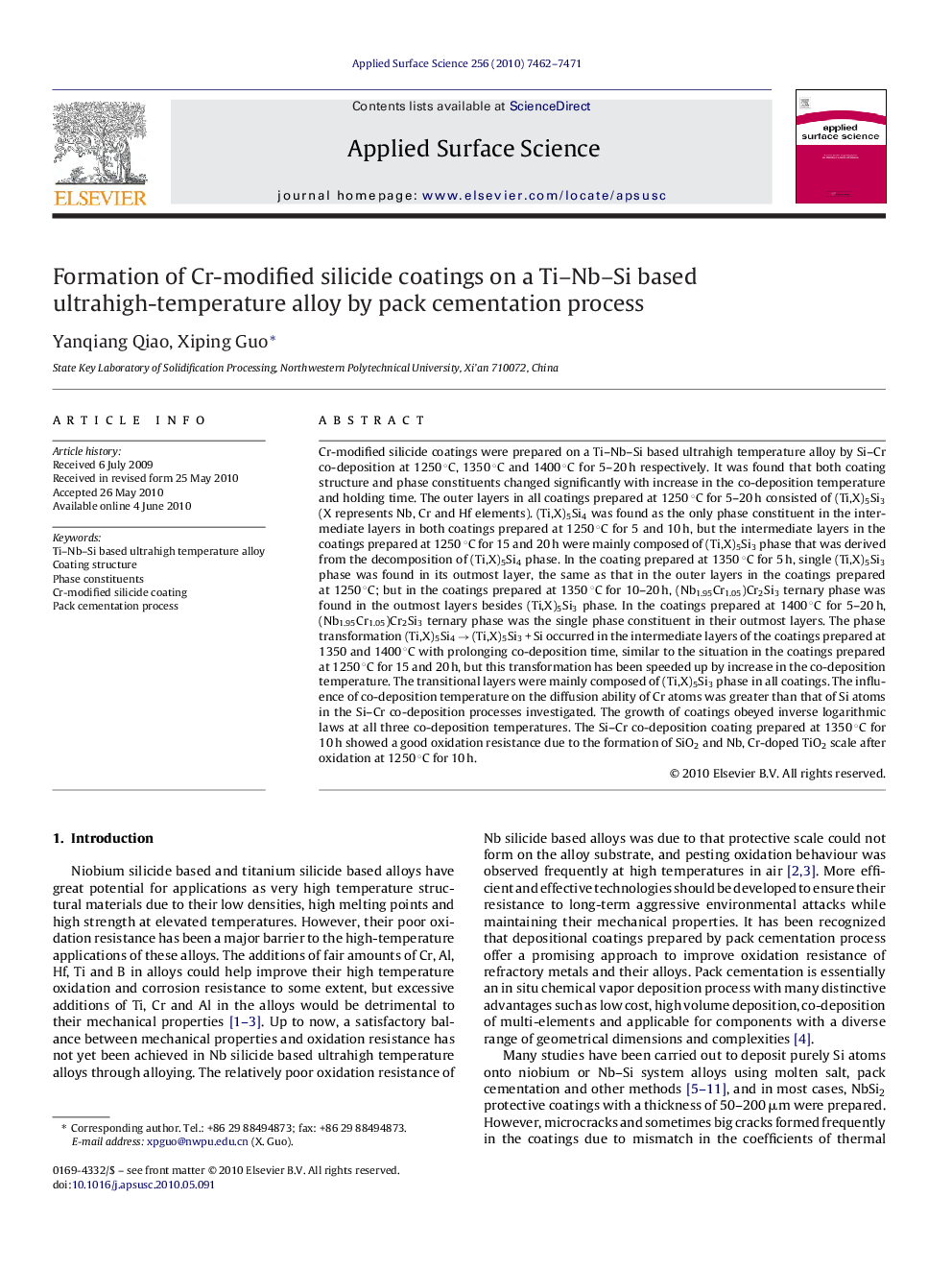| Article ID | Journal | Published Year | Pages | File Type |
|---|---|---|---|---|
| 5362659 | Applied Surface Science | 2010 | 10 Pages |
Abstract
Cr-modified silicide coatings were prepared on a Ti-Nb-Si based ultrahigh temperature alloy by Si-Cr co-deposition at 1250 °C, 1350 °C and 1400 °C for 5-20 h respectively. It was found that both coating structure and phase constituents changed significantly with increase in the co-deposition temperature and holding time. The outer layers in all coatings prepared at 1250 °C for 5-20 h consisted of (Ti,X)5Si3 (X represents Nb, Cr and Hf elements). (Ti,X)5Si4 was found as the only phase constituent in the intermediate layers in both coatings prepared at 1250 °C for 5 and 10 h, but the intermediate layers in the coatings prepared at 1250 °C for 15 and 20 h were mainly composed of (Ti,X)5Si3 phase that was derived from the decomposition of (Ti,X)5Si4 phase. In the coating prepared at 1350 °C for 5 h, single (Ti,X)5Si3 phase was found in its outmost layer, the same as that in the outer layers in the coatings prepared at 1250 °C; but in the coatings prepared at 1350 °C for 10-20 h, (Nb1.95Cr1.05)Cr2Si3 ternary phase was found in the outmost layers besides (Ti,X)5Si3 phase. In the coatings prepared at 1400 °C for 5-20 h, (Nb1.95Cr1.05)Cr2Si3 ternary phase was the single phase constituent in their outmost layers. The phase transformation (Ti,X)5Si4 â (Ti,X)5Si3 + Si occurred in the intermediate layers of the coatings prepared at 1350 and 1400 °C with prolonging co-deposition time, similar to the situation in the coatings prepared at 1250 °C for 15 and 20 h, but this transformation has been speeded up by increase in the co-deposition temperature. The transitional layers were mainly composed of (Ti,X)5Si3 phase in all coatings. The influence of co-deposition temperature on the diffusion ability of Cr atoms was greater than that of Si atoms in the Si-Cr co-deposition processes investigated. The growth of coatings obeyed inverse logarithmic laws at all three co-deposition temperatures. The Si-Cr co-deposition coating prepared at 1350 °C for 10 h showed a good oxidation resistance due to the formation of SiO2 and Nb, Cr-doped TiO2 scale after oxidation at 1250 °C for 10 h.
Related Topics
Physical Sciences and Engineering
Chemistry
Physical and Theoretical Chemistry
Authors
Yanqiang Qiao, Xiping Guo,
